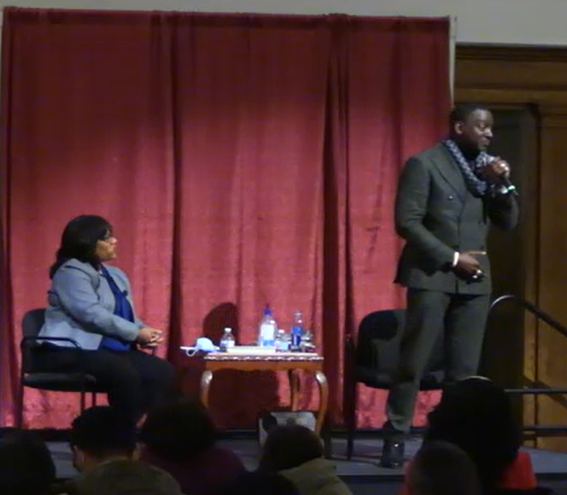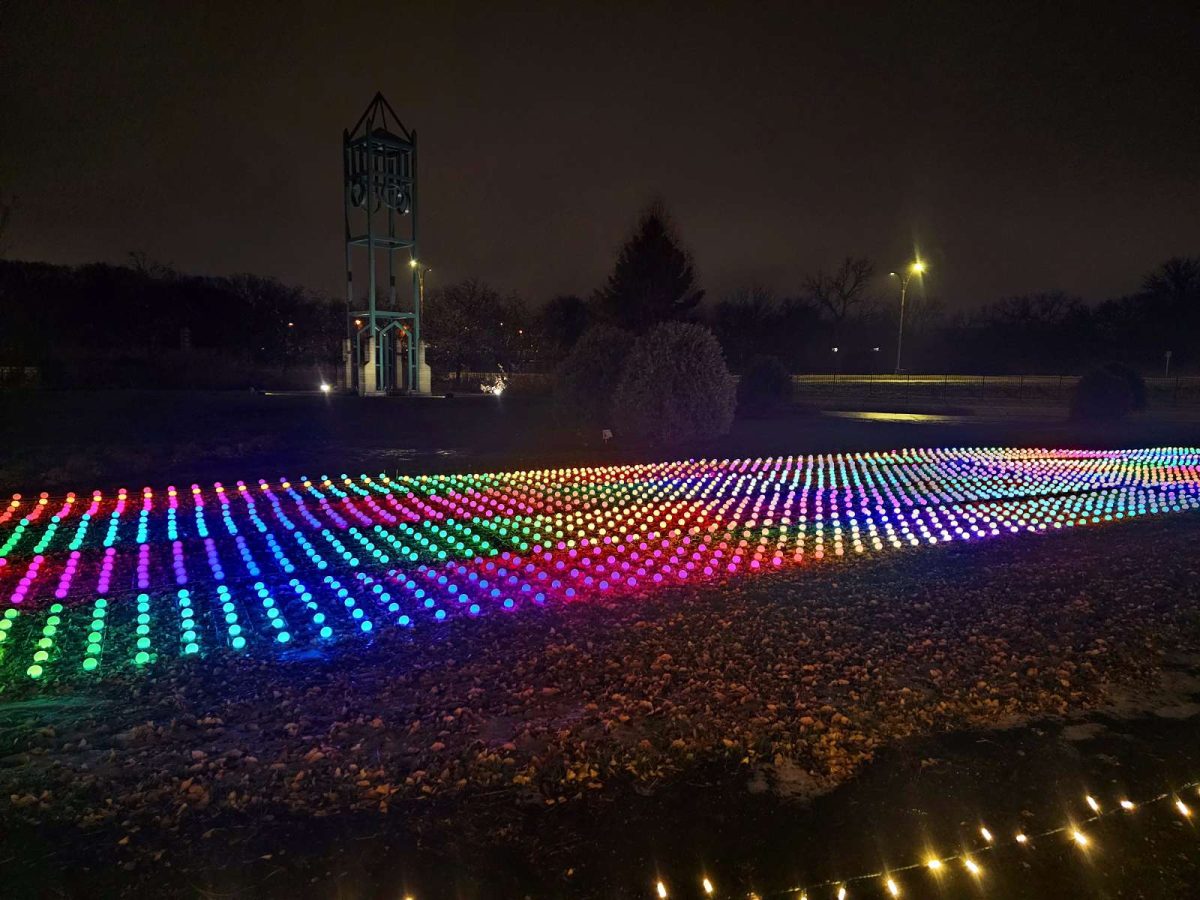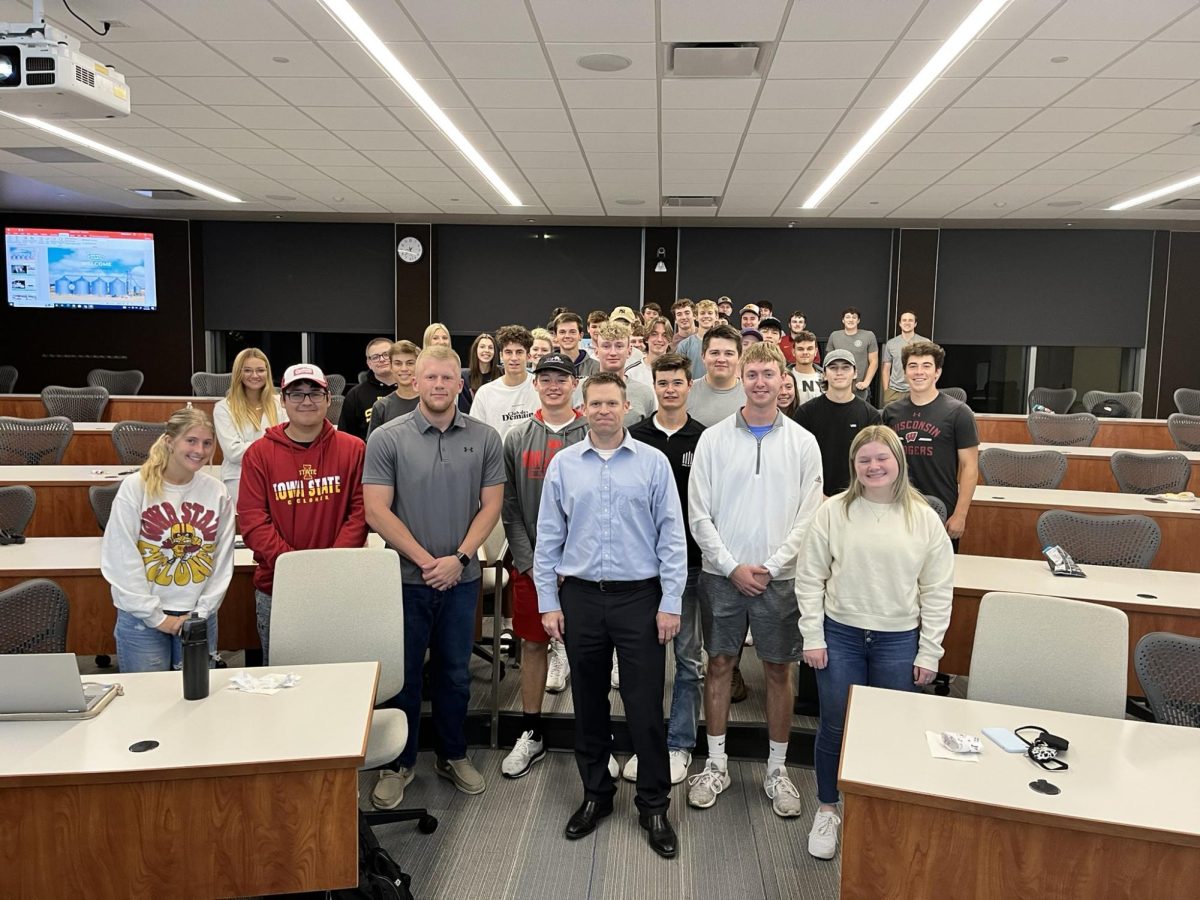Member of exonerated “Central Park Five” speaks about prison system and racial justice at Memorial Union

Yusef Salaam, a member of the “Exonerated Five,” spoke at the Memorial Union on Jan. 27.
January 27, 2022
Yusef Salaam, who at age 15 became one of the “Central Park Five” when he and four other boys were tried and wrongfully convicted for sexual assault in New York City, spoke on the evening of Jan. 27 at the Memorial Union.
Over the course of two hours, Salaam covered a variety of topics, including faith, his name, the 13th Amendment, the prison-industrial complex, voting, marijuana laws, raising younger generations, policing and his experience as one of the “Central Park Five,” which he prefers to call the “Exonerated Five.”
Kaleb Stevens, a senior in community and regional planning, said, “It really connected the heart and the mind to see him on the stage in person… He was talking about steps we can do to move forward… He has every right to hate the system, and talk about tearing things down… but that’s not what he came with [in this lecture]. It felt rejuvenating and inspirational and taught me a lot.”
Near the beginning of his lecture, Salaam said, “Today’s time is very indicative of modern-day warfare, happening right in front of our faces, with Black and Brown bodies as the collateral. In 1989, the system did a full turn of all of its weaponry towards me.”
Salaam read the 13th Amendment, commenting on the second section, which says, “Congress shall have power to enforce this article by appropriate legislation.”
“When Black and Brown bodies read [the 13th Amendment], and they read the word slavery – that word vibrates differently with us,” Salaam said. “Because it’s right there, right plain to see in front of our faces. The thing that we thought was abolished. Section two really tells the whole story. We all become Neo in ‘The Matrix.'”
Salaam talked about how his time in prison gave him more awareness of the prison system in the United States.
“I needed to go into the prison-industrial complex, a place that [is known as] ‘the belly of the beast,'” Salaam said. “I call it ‘the womb of America.’ Because, imagine that, you’re going back into ‘the womb of America’ in order to describe what it is that we are fighting for.”
During the nearly seven years he spent in prison, Salaam wrote poetry, which he published in his first book, “WORDS of a MAN.”
“I’m really, like, a rapper for real,” Salaam said. “Like I’m thinking about how to present something now…I come from the era where there was music in the message, and there was a message in the music.”
Salaam delivered a rap, which received applause from the audience.
One of the topics he discussed throughout the lecture was his involvement in the production of “When They See Us.”
“We were on set, like, every day,” Salaam said. “We couldn’t watch some of that stuff.”
Fifi Odhiambo, a senior in psychology who attended the event, said, “I watched [When They See Us] on Netflix a few years ago, and I thought it was really moving, the story of the Central Park Five…I couldn’t miss the opportunity to see [Salaam] in Ames. I didn’t know that he was still talking, going around to schools… I probably will read [Better Not Bitter] eventually.”






